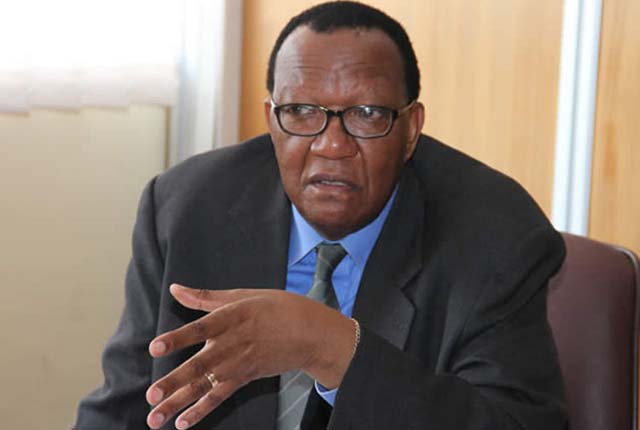Decent jobs to end poverty: ILO official

 DHAKA. — Since the world of work is changing and societies are becoming increasingly unequal, policy makers have to respond effectively to the changes to implement SDGs, especially decent work, to reduce poverty, ILO Director General Guy Ryder said.
DHAKA. — Since the world of work is changing and societies are becoming increasingly unequal, policy makers have to respond effectively to the changes to implement SDGs, especially decent work, to reduce poverty, ILO Director General Guy Ryder said.
Ryder was addressing the ministers, government high-ups, employers, diplomats and trade union leaders at the opening session of the 16th Asia and the Pacific Regional Meeting at Bali Nusa-Dua Convention Centre in Indonesia.
Vice-president of Indonesia Jusuf Kalla inaugurated the APRM 2016 that will come to an end on December 9. The meeting takes place in every four years to discuss the issues like labour and employment, workplace safety and migration.
“The world of work is changing, at a pace, scale and depth which we have never seen before. Technology is at the heart of change but it will not decide everything,” said Ryder.
While societies are becoming increasingly unequal, they are increasingly perceived as being unfair, he added.
There is a considerable doubt and uncertainty in the world with people questioning the capacity of policy makers to deliver credible answers to the key problem in their lives, Ryder observed.
Just over a year ago, the United Nations adopted 17 Sustainable Development Goals (SDGs) and the overall aim of the goals is to eliminate poverty and reduce inequality by 2030, said the ILO top brass.
Decent work is woven into the fabric of all 17 SDGs and their indicators. One Goal, SDG 8, specifically focuses on the ILO’s mission of Decent Work for All.
“We have succeeded in having the right agenda adopted and now we must turn to the task of its implementation.”
The ILO official said some of the key challenges in this area remained, despite impressive poverty reduction. Nearly 192 million workers or one in ten still live in extreme poverty in this region.
More than a billion workers are in vulnerable often without access to social and legal protection, Ryder said, adding that the concern is that some groups are in particular danger of being excluded from progress.
Migrant workers, who are frequently excluded from legal protection and prone to exploitation, will be a key feature of our future.
For ensuring workers rights and decent work, Ryder stressed ratification of the ILO’s eight core Conventions 87 and 98 that read freedom of association and collective bargaining as implementation is disappointingly low in this region. Only 14 of the 47 member states in this region have ratified all eight.
“Respect for the labour is the first priority for production and industrial output. Arbitrarily, the labour law is being changed while participation of workers in setting wages and other issues is denied,” said Felix Anthony, national secretary to Fiji Trade Union Congress.
Anthony called for steps to eradicate forced labour in Asia and Asia Pacific region and address the low wages for migrant workers. Though lots of initiatives had been taken since the factory collapse in 2013, none can tell that Bangladesh has democracy to be associated and to form union, he added.
Across this region, women have a different and usually worse, experience, when looking for decent work, according to Anthony. They are frequently paid less for work of equal value and are less likely to be in leadership and decision-making roles, he observed.
Highlighting the achievements of the region, Ryder said this region, which accounts for 60 percent of the global labour force, has made remarkable progress in the last decade.
The average wages and incomes have risen significantly, and almost doubled for the middle and upper classes and the number of extreme poor has dropped rapidly from 21 percent in 2016 to 10 percent in 2015. — DT.








Comments